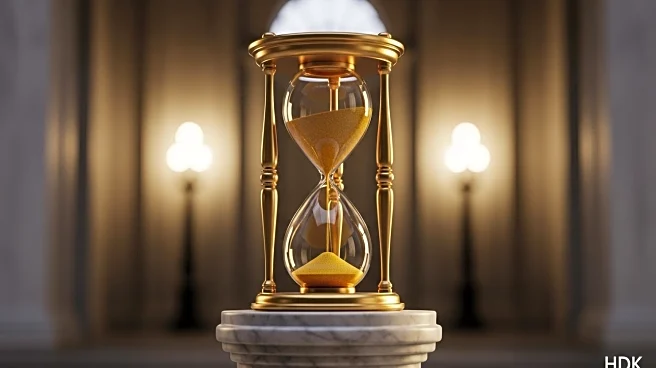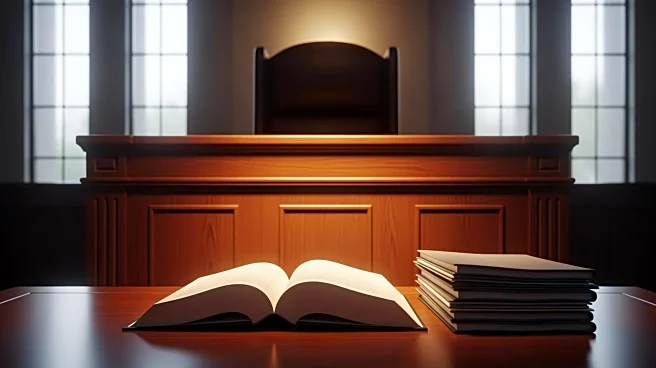What's Happening?
President Trump's emergency order, which federalized the Washington, D.C. police force and increased law enforcement presence in the city, is set to expire at midnight. The order, issued on August 11, was not extended by Congress, according to Mayor Muriel Bowser's office. Despite the expiration, D.C. National Guard members will continue their deployment under the president's direct command until December. A House committee is currently debating 13 bills that could further limit the city's governing autonomy. Republicans justify the federal intervention as necessary for safety due to D.C.'s unique status under congressional authority.
Why It's Important?
The expiration of President Trump's emergency order marks a significant shift in federal involvement in Washington, D.C.'s local governance. The continuation of National Guard deployment under presidential command highlights ongoing federal influence in the city. The debate over the 13 bills in the House committee underscores the tension between local autonomy and federal oversight. This situation impacts the balance of power between local and federal authorities, with potential implications for public safety and governance in the nation's capital.
What's Next?
As the emergency order expires, the focus shifts to the House committee's debate on the proposed bills that could further restrict D.C.'s self-governance. The outcome of these discussions may lead to changes in the city's administrative structure and influence future federal interventions. Stakeholders, including local government officials and civil rights groups, are likely to respond to these developments, advocating for or against increased federal control.








